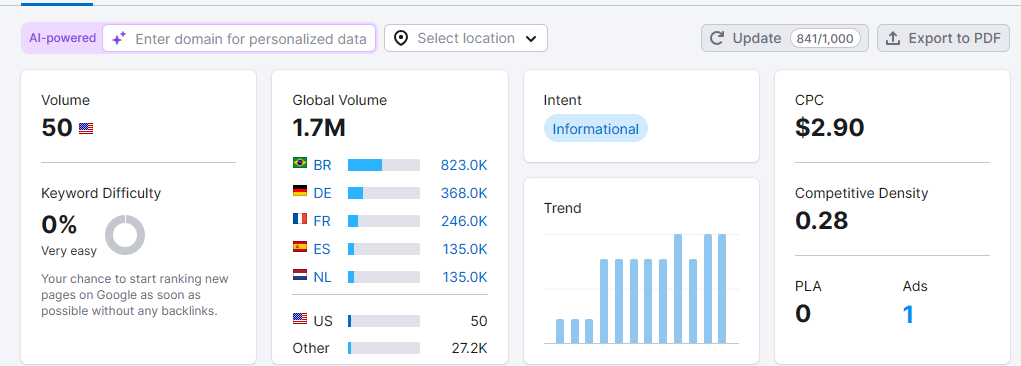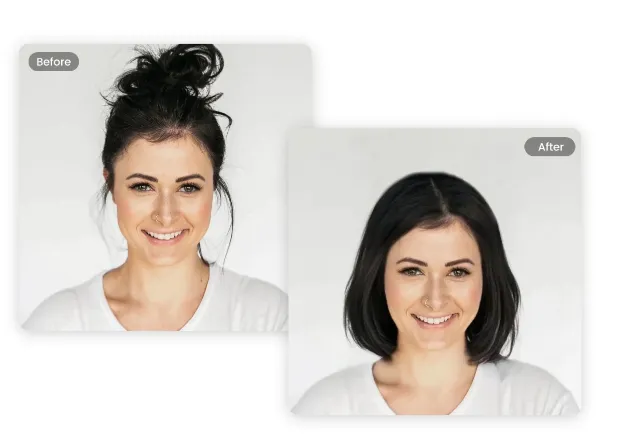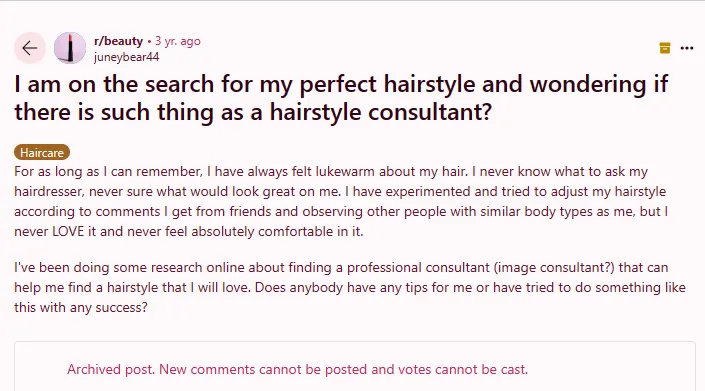What's New: Keeping users glued to your product
(from the latest issue of the Indie Hackers newsletter)
Keep your customers around by making onboarding easy:
- Your secret weapon? Amazing customer support. But, here's a plot twist: Make it easy to leave. Use reverse psychology in your favor!
- Untapped keyword: "Hairstyle consultation." It's got 1.7M searches outside the US, a keyword difficulty of zero, and low competition.
- $1K MRR with 1.1K active monthly users. Ben Waterman went from professional track athlete to indie hacker, with his fintech platform, Strabo.
Want your product seen by nearly 100,000 founders and businesses? Sponsor an issue of the Indie Hackers newsletter. Choose between 3 affordable tiers that can fit almost any budget.
SaaS Retention: Keep Your Customers Glued 🤗

by Syed Waqar
Sure, getting new customers feels great (hello, dopamine hit!), but keeping them around? That's where the real magic happens.
Cutting churn by just 5% can skyrocket your profits by 25%-95%. Small retention wins = big money wins.
Problem one: The onboarding maze
You've just landed a shiny new customer. But, if they can't figure out your product, they'll bounce!
Solution: Make onboarding as smooth as possible.
- Create an interactive tour: Hold their hand (virtually) through your core features.
- Personalize: If they're a marketer, show them the marketing stuff first. Developer? Throw them into the API playground.
- Quick wins: Let them taste success in the first few minutes.

Problem two: The "meh" factor
Your product's great, but users are not logging in or using it.
Solution: Make your product sticky.
- Build a habit loop: Think about what keeps you checking Instagram 50 times a day, then do that.
- Gamify: Add progress bars, badges, or levels. We're all just big kids who like shiny things!
- Smart nudges: Send notifications about cool features they haven't tried. But, easy does it; nobody likes a clingy app.
Problem three: The value vacuum
Users signed up thinking your product was the best thing since sliced bread. Now, they're wondering if it's worth it.
Solution: Shout your value from the rooftops.
- Email like a boss: Don't just send invoices. Share tips, tricks, and success stories. Make every email a mini masterclass in awesomeness.
- Build a knowledge temple: Create an amazing knowledge base with FAQs, tutorials, the works. Make it easy for users to become power users.
- Brag a little: Show off user success stories. Nothing sells value like seeing others crush it with your product.

Your secret weapon: Customer success
Retention isn't just about having a great product. It's about actively making sure your customers are winning. Some ideas:
- Check in on them: Don't wait for smoke signals. Reach out and see how they're doing.
- Celebrate wins: When a customer hits a milestone, make some noise!
- Watch for trouble: Keep an eye on usage patterns. If someone's going quiet, swoop in like a retention superhero.
Plot twist
Okay, hear me out. Make cancellation easy. Why? Because nothing breeds resentment like a clingy ex-product. By making it easy to go, you:
- Build trust.
- Get valuable feedback.
- Leave the door open for a comeback tour.
Plus, you might just change their mind in the process. Slap an exit survey on that cancellation page, and use that gold to make your product even better.
Discuss this story.
In the News 📰

from the Trendy Software Ideas newsletter
🚀 X launches reply sorting options on posts.
🤖 Lately generates social content your audience loves, with Neuroscience-Driven AI™. #ad
📝 Marketing research methods to learn your users better.
💰 The high cost of PPC efficiency.
🤯 "Doom spending" is on the rise.
🚏 Travelers would pay more for better, beautiful bus stops.
Check out Trendy Software Ideas to discover more software ideas inspired by recent news.
Keyword: Hairstyle Consultation 💇♀️

Dreamer Bro is an archive for experimental SEO. Today's keyword is "hairstyle consultation." It's got 1.7M searches, with subtle competition.
Semrush reports a keyword difficulty of zero (though I don't buy into the idea of keyword difficulty). Let's explore more!
Did we just hack Google?
A little further research into this revealed that this is not a US-based query. This explains why the competition is relatively small. There were only 50 US searches, compared to 800K searches in Brazil, 360K in Germany, and 360K in France.

A lot of founders make decisions based on US trends alone, often overlooking the market in other regions. This leaves business opportunities in other countries that can simply be achieved by replicating what's working in the US, one of the theories of niching down.
Satisfying the search intent
The site ranking top for this query has users go through a quiz before they can be given an output. The output is then a list of celebrities with supposedly similar hair features as you.

Other sites that rank for the keyword are basically hair consultation services; you fill out a form and book a consultation.
So, it's a mixed bag on the SERPs, which is one way to tell that a query isn't satisfied on Google.
However, if we really dig deep into the search intent of this query, a good amount of people are probably looking to get a sort of instant gratification from their search. They're not necessarily looking for a "book me for the weekend" service. This is the reason why the top related keywords for this query are:
-
"What hairstyle suits me upload photo."
-
"Test hairstyles on my face free online."
I feel that the reason the first site ranks top, outside of other ranking factors, is because of the instant gratification. Users get an output in a matter of seconds, not a consultation service.
Do something different
UMAX is an app that trended in the past month, offering users beauty tips after a scan of their face. That's actually the search intent of the query.
Build a system that has users upload their photos to get several hairstyle options, and maybe include some tips alongside them. Do your SEO thing, and put a price tag on it. Voila!

Outside of organic traffic, there are other viable traffic generation schemes for this niche: Reddit, TikTok, Instagram, etc., which makes it one of a kind.
In fact, on Reddit, there have been a number of queries on this:

r/beauty, r/malegrooming, r/MakeupAddiction, r/curlyhair, r/FancyFollicles, and r/Hair are a few places that could welcome a tool like this.
Discuss this story.
Landing Page Hot Tips 🔥

by Rob Hope
Strengthen your landing page with these design, development, and conversion tips!
Tighten your big typography.
Font kerning and tracking is a tricky subject, as not all typefaces need it. That said, it’s a good idea to experiment with your bigger fonts.
Kerning is adjusting the space between two letters in a word. Tracking is adjusting the space between all the letters in the word.
For example:
![]()
Reducing the spacing between characters in your big intro copy can really tighten your landing page design.
Subscribe to Rob's One Page Love newsletter for his favorite UI, design, and development finds.
From Running to Running a Business 🏃

When Ben Waterman started working in finance, he couldn't believe how analog money management still was. So, he decided to build Strabo, a single platform to view, manage, and analyze multiple accounts.
The background
I'm originally a professional athlete; I ran track for Great Britain. I missed out on running the 800m at the 2016 Olympics, so I had to go and get a real job.
Growing up, all I cared about was sports. The closest thing you can get to sports in the professional world is starting a business. That attracted me more than financial gain.
I worked in finance for almost three years, managing client money. A lot of rich people were paying exorbitant fees, and still doing a lot of their finances over the phone.
I had a go at a sustainability startup, but that didn't work out. I kept coming back to this idea of managing money, and realized I could tackle some of these systematic inefficiencies.
Starting in no-code
My cofounder (Michael Magdongon) and I wanted to build a super simple drag-and-drop platform for people to manage different assets. Basically, a Notion-style customizable dashboard where you could configure your own widgets and metrics.
Two years later, Strabo is a place where you can sync up all of your accounts. You can connect bank accounts, brokerages, crypto property, pensions, loans, etc. You can have multiple logins for your family or financial advisors.
We connect to 10K financial institutions in 12 countries. I don't have a technical coding background, so we started off in no-code. We built our MVP in Bubble, and initially gave it to 150 friends to try out.
It now has a full tech stack: Node.js on the backend, and React on the frontend. We use a serverless architecture (Amazon Web Services).
Hitting $1K MRR
We launched publicly in November to a waitlist of 2.5K, and we currently have 1.1K monthly active users. Our MRR is just coming up to $1K, which is a very exciting milestone.
We're experimenting with different revenue models. The basic business model is a monthly subscription, with a free tier and a bunch of premium features.
We're planning to launch a few more premium features, then move into B2B.
Getting our first users was bloody hard work. We did some LinkedIn outreach at the beginning, and a lot of SEO. Overall, we've found X, SEO, and a bit of LinkedIn to be best for us.
B2C vs. B2B
We love building consumer products! With Strabo, we can basically build a B2B and B2C product at the same time, where we use financial advisors as a distribution channel. They can have a login, and show their clients the same insights.
It's more lucrative, because we can charge a licensing fee. If we can pick up a couple of big clients, we could potentially cover all our B2C marketing costs.
Advice for indie hackers
Just talk to users and write code. Everything else is a waste of time.
Joining startup networks has been really useful for us. We're part of Opus, a really accomplished group of founders. There's a WhatsApp chat, and an office in a London WeWork that we all share.
Having people to act as a sounding board is so important. Everyone sounds so bloody sure in this industry, so it's great to have a trustworthy group of people that you can lean on for honest feedback.
Alongside Strabo, I own a leather-working interior design studio with my brother. I'm building a cabin in the countryside to work from.
It's great to have the freedom to do things like that, alongside work!
Discuss this story.
The Tweetmaster's Pick 🐦

I post the tweets indie hackers share the most. Here's today's pick:
Enjoy This Newsletter? 🏁
Forward it to a friend, and let them know they can subscribe here.
Also, you can submit a section for us to include in a future newsletter.
Special thanks to Jay Avery for editing this issue, to Gabriella Federico for the illustrations, and to Syed Waqar, Darko, Emmanuel Sunday, Rob Hope, and Katie Hignett for contributing posts. —Channing







Really well done - you sucked me right down the goddamn rabbit hole!
And who-hoo what a ride :)
😂 thanks for reading, Martin!
Beautiful and informative article.
thanks for reading!